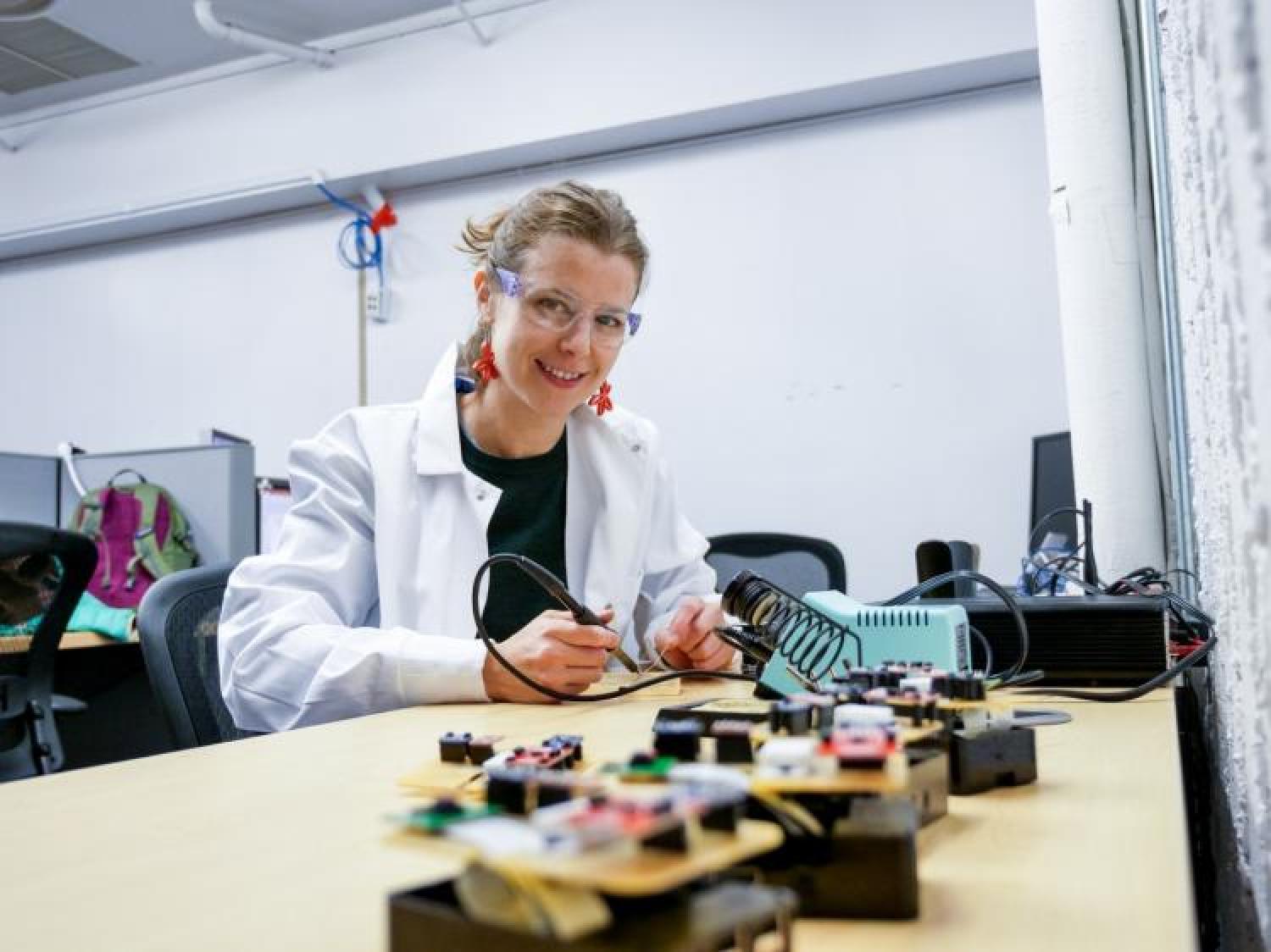Nature paper takes initial steps towards high accuracy, low-cost occupancy sensors for residential settings

Margarite Jacoby (PhDArchEngr’21) is the lead author on a new paper in Nature: Scientific Data that describes the development of a data acquisition system that can be used to capture a range of occupancy information from single-family residences. The final publicly available dataset from the project could be used to train algorithms to predict when residents are home to better utilize energy intensive equipment, such as heating, ventilation, air conditioning (HVAC) systems.
Jacoby worked on the project as a part of Professor Gregor Henze’s lab within the Department of Civil, Environmental and Architectural Engineering while pursuing her PhD at CU Boulder. We asked about her current job, how this work fits into the larger energy efficiency discussion and more.
Question: Where are you working now?
Answer: I am now a data analyst at kW Engineering in Oakland, California. My work focuses on measurement and verification of energy efficiency measures implemented on large commercial and academic buildings.
Q: How would you describe the work and results of this paper? What are the applications?
A: This work was part of a larger project which sought to develop high accuracy, low-cost occupancy sensors for residential settings. The goal of knowing the occupancy of the home is to only run energy intensive equipment such as HVAC systems when people are home. Doing so would obviously reduce overall energy consumption. This paper in particular was focused on collecting occupancy relevant information from homes that we could use to train algorithms to predict occupancy.
The instrumentation and data collection part of the work turned out to be much more difficult than we expected, so that was challenging. And the work of developing a final occupancy detection system (of which this was a preliminary step), is still on-going.
Q: Is this a research topic or area you were interested in before joining the Henze Lab? If so, why?
A: It was very important to me to be involved in research related to reducing greenhouse gas emissions. The enormity of the climate crises means that we need to tackle this problem from all angles. Buildings are large consumers of energy, and so felt like a good place to focus my efforts.
Q: What was it like working with professor Henze?
A: The CEAE department at CU Boulder offered so many great opportunities for research and exposure to industry and other fields. Working with Professor Gregor Henze was truly a pleasure - speaking with him was always very inspiring, and I loved being a part of the great work that he is doing.


